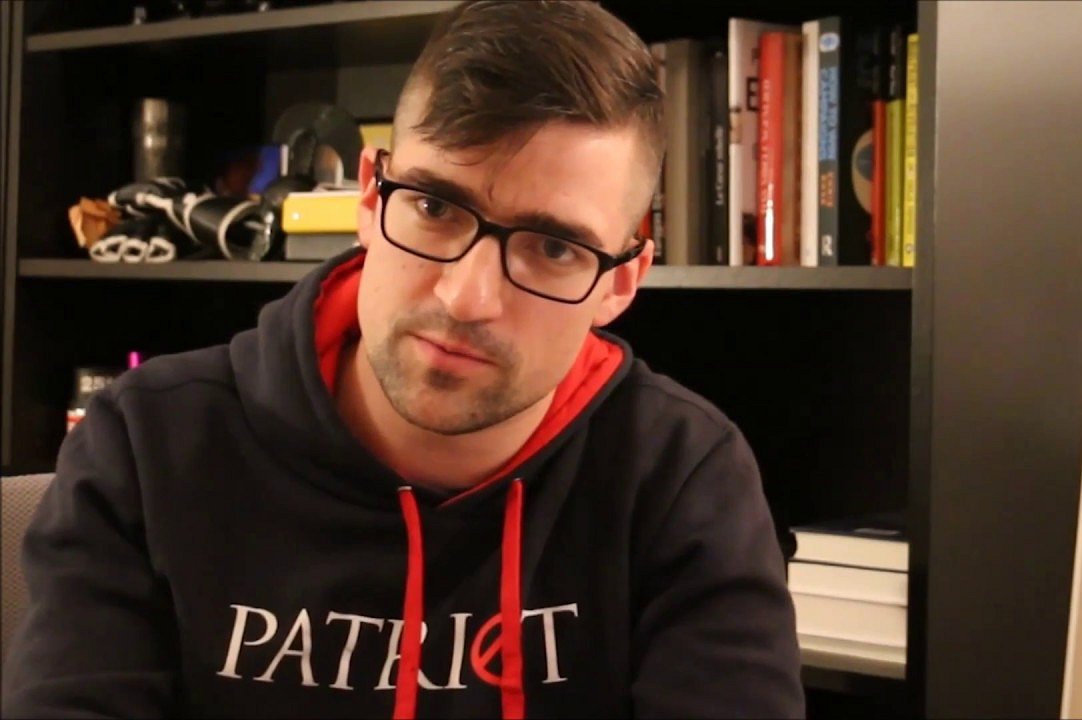
Murdered official:German Establishment in Panic Mode
A pro-open-borders official and member of Angela Merkel’s CDU has been murdered. It happened on June 2nd. A suspect, who has an extremist right-wing past, has been detained. This has triggered panic among the German establishment. They may also have considered the tragedy a welcome occasion to further curtail freedoms. These two statements are not mutually exclusive. The German ruling class are calling for stripping anyone they consider to be a right-wing ‘extremist’ of their fundamental rights to free speech, free assembly, the right to property and the right to privacy of communication. This is unprecedented and heralds a new stage in Germany’s recent slide towards totalitarianism.
First, some background. The murdered official, Walter Lübcke, was not particularly high-ranking, but neither was he just anyone. In fact, he gained some international fame or rather notoriety. As the head of the prefecture of the Kassel region in the state of Hessen, he was the person who, at the height of the refugee crisis in October 2015, was filmed in a town hall meeting defending Merkel’s open-door-policy with some rather unorthodox advice to his listeners, many of whom were protesting. He said this:
“It's worth living in our country. You have to stand up for values, and those who do not stand up for these values can leave the country at any time, if they do not agree. That is the freedom of every German.”
Now he is dead, and an alleged right-wing extremist is the suspect. Or rather someone who was active in a right-wing extremist group until 2000, but is now a family father of two and whose neighbors at his current address had no bad word to say about him. He is under investigation, but has not yet been charged. Nevertheless, in the past week, a high-ranking CDU politician called Peter Tauber went on the offensive. The former Secretary General of Merkel’s party and current Parliamentary State Secretary for Defense penned an opinion piece in the national newspaper ‘Die Welt,’ stating that people with opinions that deviate from the mainstream should be deprived of the basic rights determined by the German ‘Basic Law’ or constitution. He specifically cited Article 18 of the constitution. This Article was originally included in the post-war document to prevent Nazis from staging a coup against the young German democracy. It has never been used. In his article, Tauber even singled out certain leading politicians of the ‘populist’ AfD, such as Alice Weidel, as well as members of the conservative wing of his own party, implying that they might be in line for ‘special treatment’ on the basis of Article 18.
It would be difficult to actually implement such a policy, at least for the time being. Tauber’s aim was more likely to rally support for a frightened establishment and to simultaneously create a chilling effect on what is left of free speech in Germany. However, the question remains: Why this heavy-handed approach, and why now?
One obvious reason is the murder itself. It is the first political murder in Germany since 1991. I’m not speculating on who actually did it. It might well have been the current suspect, we don’t know. Many, if not all, politicians who supported Merkel’s immigration policy – and Tauber is one of the most vociferous in this regard – won’t know either and will be genuinely frightened.
However, the enthusiasm with which this incident is used to bash the only real opposition party in current Germany – the AfD, indicates that the ruling class is frightened of something else as well. And that is the recent surge in support for the AfD. To be sure, that surge is only partial, and limited to eastern Germany, but sufficient to cause the establishment a huge problem. In a few weeks’ time there are going to be parliamentary elections in three federal states. All three are in eastern Germany, where support for the AfD is much higher than in western regions of the country. Saxony and Brandenburg will vote on September 1st, followed by Thuringia on October 27th. In all three, the AfD is likely to finish strongest party for the first time ever. They are currently polling between 22 and 28 percent there, more than any other party. They will not gain an absolute majority, but a plurality alone in these states will greatly consolidate the position of the AfD, even at the federal level. And it will weaken the establishment parties.
We got a foretaste of that scenario on Sunday June 16th. On that day, there was a runoff vote for Mayor of the Saxon city of Görlitz between candidates of the AfD and the CDU. The candidate of the Greens could also have taken part, but he passed up the opportunity and instead endorsed the CDU candidate – a highly unusual move for the leftist Greens. All other parties, including the far left, plus all the established media, also rallied behind the CDU. Even Hollywood did, fearing for the reputation of this beautiful city, which is often used as a historical backdrop for movies, should the mayoralty fall to the ‘far right’ AfD. And with all that massive support the CDU won, just, with 55 percent against 45 percent for the AfD.
So, now the establishment’s gloves are really coming off. There are still many questions regarding the circumstances of the crime against Lübcke. However, once the above-mentioned arrest was made, 16 days after the event (and two days after the Görlitz vote), Angela Merkel, who had previously said nothing about the case, said that this was “depressing news”. Federal Secretary of the Interior Horst Seehofer added: “After all we now know we have to assume at this point in time, that the perpetrator is a right-wing extremist and that the crime has a right-wing extremist background”.
The media then suddenly kicked off an orchestrated cacophony and quoted the entire upper echelons of politicians, who have suddenly discovered their sympathy for the murdered man. And that brings us to Peter Tauber and his demand to curtail basic rights. Nobody in the establishment is pushing back against this move. On the contrary. Anyone in the CDU who entertained the idea of a possible coalition with the AfD is now hurriedly distancing him- or herself from this notion.
Vera Lengsfeld, a former GDR dissident and a regular contributor to ‘equity & freedom,’ commented that Tauber’s demands are “totalitarian” and should have no place in a democratic party. “Instead of hunting down actual extremists,” she complains, they are “focussing on people who have a different opinion”. However, she warns, “any verbal playing with fire can have devastating consequences. But politicians and the media seem to have forgotten this.” And they won’t remember “until they realize that they can't get rid of the genie once it’s out of the bottle. The French nobles flirted with the revolutionaries until they landed on the guillotine. Louis XVI had even suggested an improvement for the device. The Russian noble daughters who smuggled diamonds on their bosom for the Bolsheviks almost without exception landed before their firing squads.” History doesn’t repeat itself, Lengsfeld concludes, but we must learn from it.
The next few months and years will show just how much Germany has learnt from the past, and how much it has forgotten. It will also show a political rift, already existing between supporters of the AfD and the rest of Germany society, ever widening. This cannot go on for ever, obviously. Germany, like the rest of the western world, is undergoing a crisis that reaches deeper than politics. It is a crisis of political vision and the general direction society should take. It is by no means certain how this crisis will end. Totalitarianism is on the menu.




